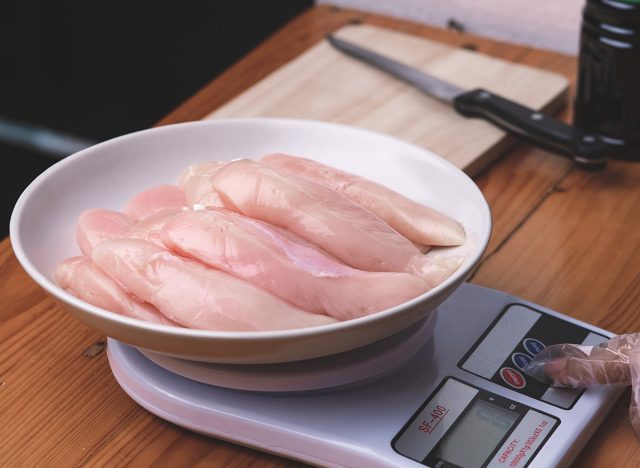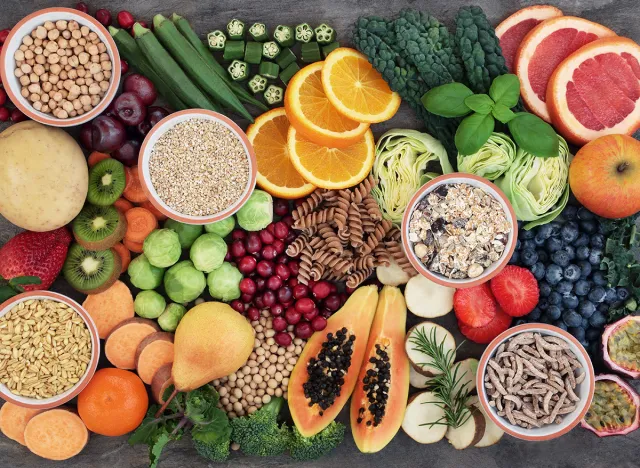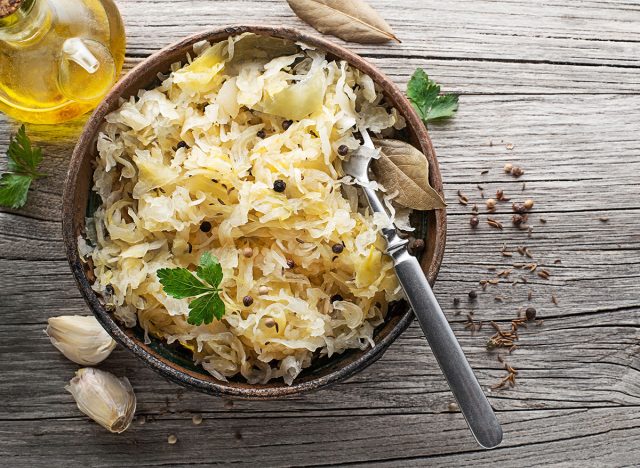I'm a Doctor and This Why You Should Follow 30-30-3 Every Day
The diet you maintained in your 20s and 30s likely won't work for you later in life. Amy Shah, MD, is a double-board-certified doctor and nutritionist based in Glendale, Arizona—Shah, who specializes in clinical medicine and allergy/immunology. In a viral video, she reveals her 30-30-3 nutrition concept, promising that it is the ultimate game-changer. "It's a shame. We should've learned about this nutrition concept in elementary school," she captioned the viral Instagram post. Here is what you need to know about it.
Women Over 35 Need to Prioritize Nutrition and Lifestyle

"Women over 35 should be counseled on their changing hormones over the next 20 years. As Microbiome changes, it's more important than ever to focus on nutrition and lifestyle," she continues in the caption. "I want my daughter to know that strong bones, strong muscles, and a strong mind and spirit come from a foundation of good habits and good nutrition. How can we be our best if we don't do the things that are obvious?"
It's Not So Obvious

Shah's daughter plays a starring role in the viral video. At the start of the clip, Shah's daughter asks, "What is obvious to a doctor and nutritionist specialist that is not obvious to other people?"
30 Grams of Protein in Your First Meal

The first 30 stands for 30 grams of [protein in your first meal. "When you have protein in your first meal, it's a way to improve gut health, curb cravings, and balance blood sugar—all of which become disrupted during perimenopause," she tells Newsweek.
RELATED: I Lost 135 Pounds by Eating More and Walking
30 Grams of Fiber Throughout the Day

30 Grams of Fiber Throughout the Day: Next, she says that 30 grams of fiber throughout the day is crucial for maintaining a healthy gut microbiome. "Thirty grams of fiber is the amount recommended by doctors to 'feed' our good gut bacteria and maintain good health," she says.
Three Probiotic Foods Daily

And finally, she recommends three probiotic foods every day, explaining that they help balance the gut. 3. She recommends yogurt, kefir, and sauerkraut.
Use This as Your Diet "Framework

Use this to formulate your diet. "This is a framework of how you should be eating every day for optimal health," she says during the clip.
She Also Recommends Walking on an Incline

In another post, she explains why you should walk on an incline. "You can raise up the incline, and now it counts as some of your muscle training, provides you with the equivalent calorie burn of a run or HIIT but with less of that cortisol elevation & stress on your joints," she writes.
RELATED: 12-3-30 Walking Method: 20 Proven Tips to Lose Weight Faster
This Becomes More Important in Your Late 30s, 40s, and 50s

"As you move through perimenopause in your late 30s, 40s, and 50s, you may notice that things that didn't stress you out before now do— it's not just in your head. We become less cortisol resilient through these perimenopausal years," she says.
It Helps Regulate Cortisol Levels

"I personally have always had issues managing my cortisol throughout medical school and my training, and as I moved into perimenopause, I noticed that my workouts were less effective, I was so much more depleted, and I had trouble sleeping, which is a sign for me when my cortisol is dysregulated," she says.
RELATED: 15 Best Banana Recipes For Weight Loss
Start Small and Work Your Way Up

She recommends starting small and working your way up. "Try walking at a small incline in the beginning for 30 minutes and then move up to 10 to 12% at 3 mph 3-5x/week," she says. And if you enjoyed this article, take advantage of these 20 Superfoods for People Over 50.





